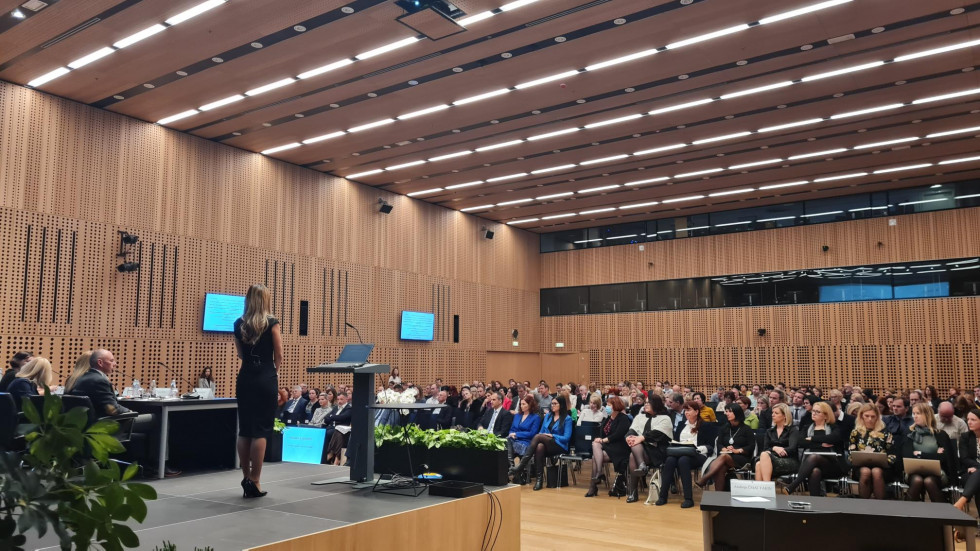Emergency legislation measures to improve accessibility of health services
The measures, which also include supplements for an increased workload and clinics for persons not formally defined as insured, are not final yet. In the words of the Minister of Health, Danijel Bešič Loredan, they “are a living thing”, which can still be amended. “All these measures are the basis for systemic changes”, said the minister, and added that they wanted to remove administrative barriers in healthcare, and ensure that each link in the healthcare chain does its job. “We’re all here for the patients”, stressed the minister.
The acting director of the Office for Control, Quality and Investments in Healthcare of the Republic of Slovenia, Aleš Šabeder, presented the changes in managing public healthcare institutions. Meanwhile, the ministry is also preparing a harmonisation of the articles of association of all public healthcare institutions.
The general director of the Directorate for Healthcare, Vlasta Mežek, presented in more detail the possibilities for concluding work contracts with your own employees, in order to implement a regular or extraordinary programme, if the providers estimate that all other possibilities to carry out these services have been exhausted. Meanwhile, Miriam Komac from the Association of Health Institutions of Slovenia, addressed the challenges and opportunities of offering appropriate rewards in cases of special workloads. One of the novelties brought by the emergency legislation includes so-called outpatient clinics for persons not formally defined as insured, which will be organised by public health institutions, where a choice of general practitioner is not possible due to a lack of doctors. According to the chief of staff at the ministry, Tine Jamšek, it is expected that there will be 60 such clinics throughout the country.
The representative of the Health Insurance Institute of Slovenia (ZZZS), Sladjana Jelisavčić, presented the conference attendants with the activities aimed at increasing the accessibility of healthcare services implemented by the ZZZS, while the General Director of ZZZS told a press conference that the institute supported all measures aimed at improving the wellbeing of insured persons. She added that the ZZZS would monitor the realisation of measures and publish information on a monthly basis. This would enable healthcare service providers, the ministry, the ZZZS and the association to adapt measures if necessary. The director of the Association of Health Institutions of Slovenia, Marjan Pintar, said “there have never been so many possibilities for carrying out work in healthcare”.


